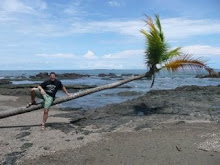Today, bananas are one of the largest revenue generators of Costa Rica. Well, how did it come to be that way? It all started in the year 1878 when banana planting and cultivation began. An interesting fact is that Costa Rica was the first Central America nation to begin this process. In the early 1900's the United Fruit Company, founded by Minor Keith, became and established banana plantation. At that time, Costa Rica was the number one producer of bananas in the world. However, in the year 1934 a strike occured resulting in the shut down of banana production in Costa Rica. The production began again when equal wages were given to all workers. In the 1950's another company stepped in to fulfill the demand for bananas, and that was the Standard Fruit Company. They began production in 1956 and began exporting in '59. However, it was also shut down in 1985 due to a 72-day strike. They were able to bounce back but were condemned in 1992 due to pollution. According to a main theme in Corporate Survival: The Critical Importance of Sustainability Risk Management, is it more important to make the right choice, but endore more costs in the short-run and large rewards in the long-run or the wrong choice to make a quick dollar and face the consequences when they come? For the Standard Fruit Company, they made a wrong choice and were effected by that in the long-run. However, they bounced back again. Today, BANDECO (Del Monte) and the Standard Fruit Company (Dole) are the leading exporters of Costa Rican bananas.
How are bananas prepared? Well, first the plantations use incecticides to protect their product. Then the large bunches are cut off the stalk, placed on a large belt to transport them to other labors to sort. Then they are washed and then placed into boxes for shipment. Now, there are two sustainabile issues that must be addressed. First, the bags that are used for shipment have incecticide in them and are usually disposed of into the sea. Not only are these chemicals spreading through the water, but many turtles are also choking on these bags mistaking them as jellyfish. The second point is that the fertilizers that have many different chemicals in them are being washed out to sea. This has a direct effect on coral reefs, as many are dying. Again, we must ask ourself this question while thinking of the seventh generation ahead of us, is it worth destroying our planet in order to make a short-run profit or should we be making environmentally sound decisions and be thinking of the long-run?
Information from: http://www.kostaryka.org/banany2489/
Thursday, May 22, 2008
Subscribe to:
Post Comments (Atom)

No comments:
Post a Comment